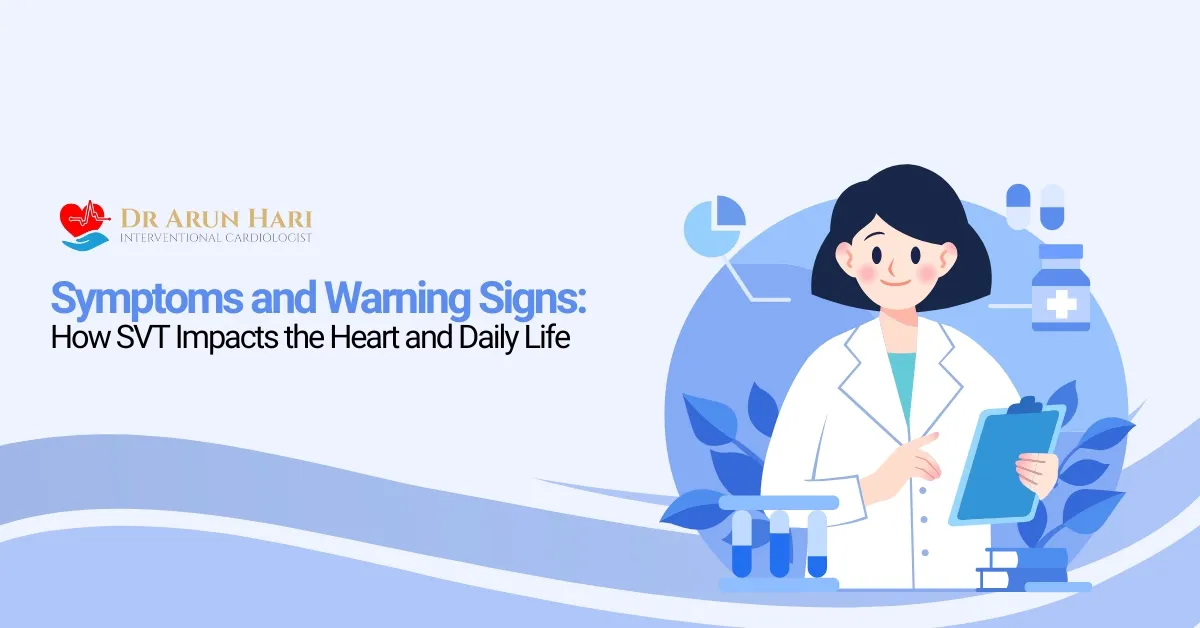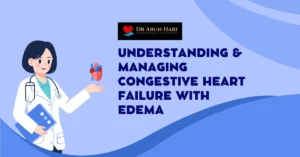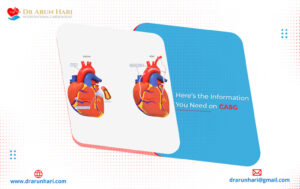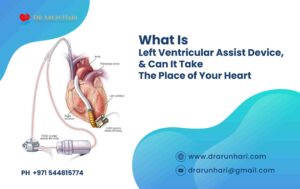Take good care of your body as it is the only place you have to live! – By Jim Rohn
Supraventricular tachycardia (SVT) happens to be a condition, which impacts electrical impulses in the heart, leading to an abnormally fast heartbeat. It is a common arrhythmia, which affects the heart’s ability to pump blood effectively. As per a study published by the National Institutes of Health, nearly 2.25 percent of the world’s population suffers from SVT. In Abu Dhabi (UAE), there is growing awareness & knowledge about how SVT impacts the heart, but many still struggle to fully understand the impact of this condition.
How SVT Impacts the Heart?
The heart is an incredible organ that can accurately & efficiently pump blood throughout the body. However, in people with SVT, the electrical signals, which control the heart’s rhythm, become disrupted. Normally, the electrical signals come from the sinoatrial node, the heart’s natural pacemaker, but in SVT, these signals can come from other parts of the heart, particularly the atria. As a result, the heart beats abnormally fast, often exceeding 100 beats per minute. This fast heart rate significantly impacts the heart’s function and its ability to pump oxygen-rich blood to vital organs, and can cause fatigue, dizziness, and shortness of breath. If left untreated, SVT can lead to more serious complications over time, including heart failure and cardiac arrest. A fast heart rate increases the oxygen demand of the myocardium (heart muscle), which can impair the heart’s performance, specifically during physical activity.
SVT and Cardiac Arrest: How Supraventricular Tachycardia Impacts the Heart
Although SVT may appear to be a harmless/benign condition at first, it can have serious consequences, such as cardiac arrest. While SVT itself does not directly cause cardiac arrest, if the heart rate becomes longer or more severe, it can lead to arrhythmias that disrupt normal heart function. The heart’s electrical system is delicate, and SVT episodes can eventually lead to more serious arrhythmias, such as ventricular fibrillation, which causes the heart to stop beating altogether. In some cases, SVT can also result in other complications, like a sudden drop in BP, which can reduce the heart’s ability to circulate blood. This reduced blood flow to a vital organ can lead to cardiac arrest, specifically in people who already have heart disease or structural heart disease.
Symptoms & Warning Signs: How SVT Impacts the Heart & Affects Your Daily Life?
Symptoms of SVT vary but usually include rapid heartbeat, chest discomfort, dizziness, fainting, & shortness of breath. These symptoms can greatly impact quality of life, preventing patients from being physically active and, in some cases, even preventing them from carrying out daily activities. Because SVT episodes can happen suddenly & unpredictably, patients may feel anxious about when the next episode will occur. In extreme cases, SVT can impair the heart’s ability to pump blood effectively, resulting in heart failure or worsening of existing conditions.
Brief Overview of SVT & its Serious Implications
- Supraventricular Tachycardia (SVT) and Cardiac Arrest: While SVT doesn’t directly result in cardiac arrest, severe episodes can contribute to arrhythmic events, which can cause the heart to stop.
- SVT and Heart Failure: SVT can contribute to heart failure over time, specifically if it is left untreated, as the heart struggles to maintain effective blood circulation.
- Can SVT Cause Cardiac Arrest? Prolonged or untreated episodes of SVT can ultimately result in more severe arrhythmias, which may trigger cardiac arrest.
- Supraventricular Tachycardia Risks: The risks of SVT include arrhythmias, heart failure, & an increased chance of developing coronary artery disease wing to the heart’s prolonged elevated heart rate.
- How Does SVT Affect Heart Function? SVT weakens the heart’s ability to pump blood efficiently, lowering cardiac output & potentially resulting in heart failure or arrhythmic events.
- Can SVT Lead to Heart Disease? Over time, SVT can contribute to the development of heart disease, especially when combined with other risk factors such as high BP or coronary artery disease.
- Treatment for SVT-Induced Heart Damage: Treatment options for SVT-induced damage include medicines, catheter ablation, & lifestyle modifications to improve heart health.
- SVT Arrhythmia and Heart Attack: The strain that SVT places on the heart might augment the risk of heart attack, specifically in patients with pre-existing coronary artery disease.
- Impact of SVT on Blood Flow: SVT may harm blood flow by lowering the heart’s pumping efficiency, especially when episodes are prolonged.
- SVT and Heart Failure: The longer the heart is under strain due to SVT, the more likely it is to develop heart failure that may need immediate medical intervention.
Doctor Arun Hari at LLH Hospital in Abu Dhabi (UAE) Treats Heart Related Ailments
If you or a loved one is experiencing symptoms consistent with SVT or any other heart conditions, you should always see a cardiologist for an accurate diagnosis & appropriate treatment. Doctor Arun Hari, Lead Cardiologist at LLH Hospital, Abu Dhabi (UAE) is experienced in treating SVT & other heart conditions. Doctor Hari uses the latest diagnostic tools & a comprehensive approach to develop individualised treatment plans for managing the effects of SVT on the heart. It is important to understand exactly how SVT impacts the heart, including blood flow, its impact on heart function, and the risk of complications such as cardiac arrest & heart failure. For those affected by SVT, immediate medical care & treatment are essential to minimise long-term damage and maintain cardiac health. With years of experience in the field of cardiology, Doctor Arun provides expert care to patients with supraventricular tachycardia, heart failure & other cardiovascular diseases. Whether you are looking for advice or require advanced cardiac treatment, Doctor Arun Hari & his team at LLH Hospital are committed to providing you with the best possible care. Visit him today to know your treatment options and if you are truly in the risk zone, start treatment as soon as possible.





